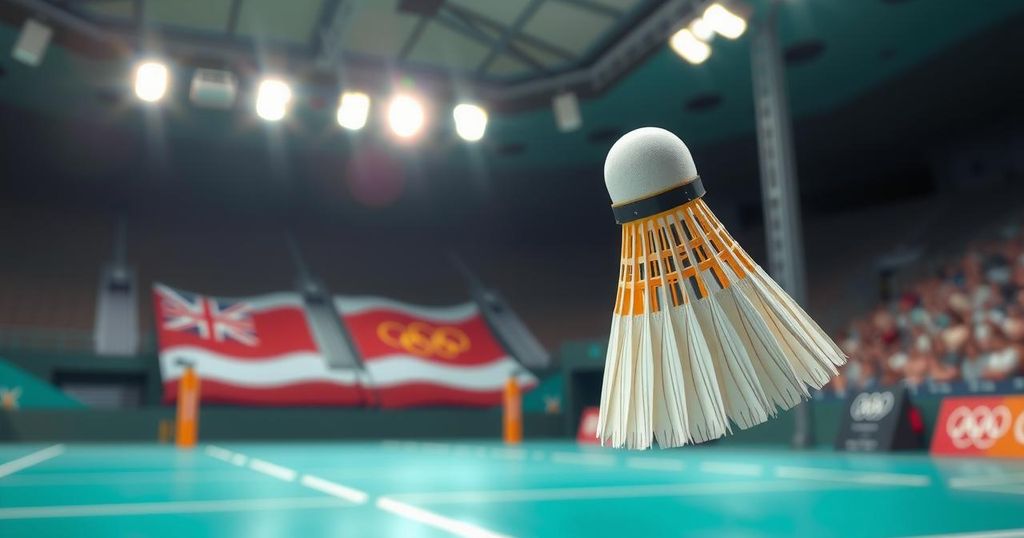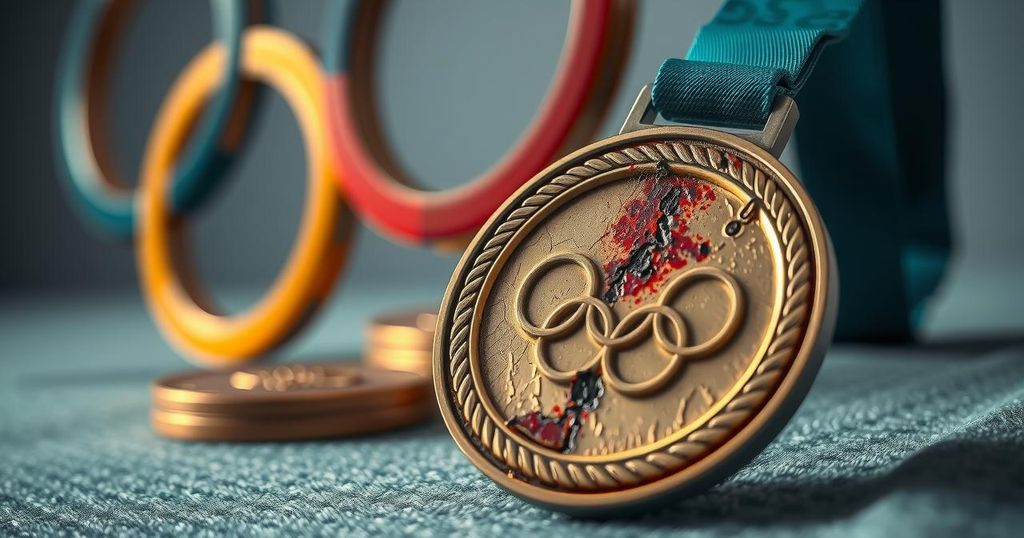Nathan Hales Eyes Future Aspirations as He Competes at ISSF World Cup Finals
Nathan Hales, the recent Olympic men’s trap shooting champion, competes at the ISSF World Cup finals in New Delhi, having had limited practice since his victory. He reflects on the changes following his success, balancing new media attention and family commitments, while preparing for the 2028 Los Angeles Olympics. Hales plans to enhance his training regimen and considers switching to a new trap gun, with a vision to make history as the first British double Olympic medallist in shooting.
As Nathan Hales prepares to compete in the ISSF World Cup finals next week in New Delhi, he arrives with the prestige of being the Olympic men’s trap shooting champion. At the age of 27, Hales not only secured the gold medal in Chateauroux a few months prior but also set a new Olympic record by scoring 48 out of 50 targets, surpassing the previous record of 43 out of 50. However, Hales expresses a tempered perspective regarding his upcoming competition at the Karni Singh Shooting Range, noting that he has had very limited practice since his Olympic triumph. “I have only just started training properly this week. I managed to shoot a couple of times throughout last month, but all-in-all I’ve only had two days on the range,” he remarked during an interview with Sportstar. Hales acknowledges that his time commitment to training has significantly changed as a result of his newfound status as an Olympic champion. “I’m not so worried because I’ve never been someone who did a lot of training rounds. I’ve been busy with media attention, signing contracts, and thanking my supporters,” he explained. He further added, “There’s a quote I saw on social media that applies to me: ‘Everyone prepares you to win, but nobody prepares you for what happens when you win.'” This sudden influx of media and public engagement came as a surprise to him, stating that it was “crazy for probably four or five weeks after” the Games. Although shooting may not be a mainstream sport in England, his medal’s significance during a lack of other UK success at the Olympics led to substantial media coverage. Hales noted, “On the day that I won the trap gold, I think I was possibly the only medallist for Great Britain. That garnered significant media attention and was beneficial both for the sport and for me personally.” He reflects on the challenges that come with such recognition, stressing the importance of safeguarding his Olympic gold medal. “Everyone wants to see my medal, so I have to be a little careful with it. Eventually, I’ll frame some of my kit and memorabilia from the Games, but for now, the medal stays locked away for safety.” Hales also highlighted the impact of his Olympic achievement on his family, particularly his two young children, noting that they do not fully grasp the significance of his gold medal. “My little boy is nearly seven, so he understands a bit more, while my little girl, being just 19 months old, has no idea at all. However, even with an Olympic title, my father duties remain. With my wife working, I share the childcare responsibilities.” As he approaches the World Cup finals, Hales is keenly aware that this event marks not only the end of the current international shooting calendar but also the beginning of preparations for the 2028 Los Angeles Olympics. Managing family life alongside competitive shooting will be one of his challenges in the upcoming Olympic cycle. He reflected candidly, “Things will become a little more challenging in the next Olympic cycle because my kids will get older. I think it will be harder to leave as they become more aware of my absences.” Looking ahead, Hales aims to sustain the momentum of his previous successes, understanding that replicating the dynamics of an Olympic cycle is complex. “I’ve spoken to some people, and they’ve said the next Olympics will be easier for me. I am unsure about that. I think the only approach is to enjoy the process and not focus solely on chasing records.” In preparing for 2028, Hales plans to tweak his training regimen based on the lessons learned over the past few years. He stated, “I know what works and what doesn’t. We will review the training plans from the last three to four years and determine what needs adjusting.” Moreover, Hales is considering a significant upgrade to his equipment by switching to the Beretta SL2 trap gun, which features new barrel technology. While he intends to try out this new equipment post-World Cup, he remains cautious. “It’s not essential to switch, but I believe it could be a game changer for me in trap shooting.” Hales’ ambitions extend beyond just one more Olympic appearance; he aspires to be a trailblazer in British shooting history. “In Great Britain, we have never had a double Olympic medalist in shooting. I am determined to be the first.” The World Cup finals offer Hales a chance to showcase his prowess under different circumstances as he transitions into a new competitive cycle but remains focused on his ultimate Olympic dream.
The ISSF World Cup finals are a significant event in the international shooting calendar, and Nathan Hales’ participation represents not only his status as an elite athlete but also the beginning of a new four-year cycle leading up to the Los Angeles 2028 Olympics. The background of this narrative encapsulates the challenges that champions face in maintaining their training and performance amidst increased fame, family responsibilities, and the pressures related to their achievements. Hales’ recent Olympic success positions him not only as a competitor but also as a potential role model for future athletes in the sport, particularly in a country where competitive shooting is less recognized. His reflections on training, family life, and future aspirations provide a multi-faceted perspective on the journey of an elite athlete adjusting to the demands of continuing success and legacy.
In summary, Nathan Hales is embarking on a critical phase of his shooting career as he prepares for the ISSF World Cup finals while looking forward to the 2028 Los Angeles Olympics. Balancing family life, increased media attention, and competitive pressures post-Olympics presents unique challenges. Hales’ commitment to continuous improvement, along with his aspirations to become the first British double Olympic medallist in shooting, underscores his dedication to the sport and his resilience as he navigates the complexities of his new role as an Olympic champion. His forthcoming experiences will serve as a foundational chapter as he aims to make a lasting impact in the shooting community and beyond.
Original Source: sportstar.thehindu.com








Post Comment